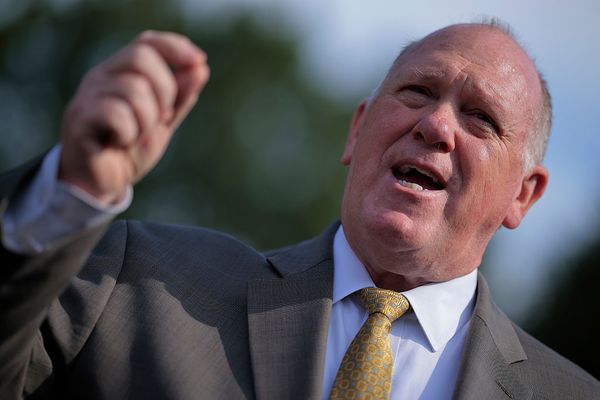
Take your wins when you can. Last week’s judgment by the court of appeal, declaring that Suella Braverman’s plan to send refugees to Rwanda is unlawful, released a ripple of relief and some celebration among campaigners. And why not? Many people worked hard to make that judgment possible. Lawyers, campaigners and asylum seekers came together and gathered evidence and made arguments and convinced others and stopped a cruel new policy in its tracks. So, a win. Let’s own it. Right?
While this sense of relief is understandable, it’s way too early to celebrate. For a start, the judgment is fragile. It wasn’t a unanimous decision, and the government quickly confirmed that it will appeal.
But, above all, this judgment has not stalled the baffling and ferocious energy that the government is putting into its assault on refugees. Some onlookers have always seen the Rwanda plan as more performative than real. In this view, the plan’s value to the government is not in its potential for dealing with existing claims or even for deterrence, but in its potential to ratchet up the debate to ever more heated levels. By pursuing this extreme policy, the government can paint its enemies as traitors, and raise the temperature of the culture war.
That temperature is not lowered by this judgment. It may even be increased, as Braverman reframed the decision in her poisonous rhetoric, stating that the system “is rigged against British people”. Other MPs joined in, with Jake Berry calling the court “the blob”, and Simon Clarke arguing that it thwarted the “clear will of parliament”.
Such corrosive language, with its vision of a collision course between the interests of British people and those who would defend even the principle of asylum, was once seen as unusually extreme. But this populism from politicians is being fuelled by commentators who have found that racism gains them social media fame, and such warped rhetoric is now everywhere. It has become pretty mainstream to see migrants blamed for all social ills, from crime to health waiting lists; and to see those who arrive on our shores mocked and demonised.
Second, we have to recognise that this is not just a culture war. Beyond the Rwanda plan, the government is engaged in an assault on the asylum process. This means that behind the rhetoric is already so much human suffering. Thousands of asylum seekers are stuck in limbo, as the government refuses to deal with the backlog of cases. This backlog now affects an estimated 170,000 people, almost four times the number who arrived on UK shores in small boats last year.
While the government speaks vaguely about wanting to bring down this backlog, the will is missing. One minister let slip last month that it might be kept high for the purpose of “deterrence”. And the government’s recent cost analysis of the Rwanda plan only compared the offshoring policy with the cost of keeping asylum seekers in limbo. The pragmatic pathway of processing claims so that asylum seekers could move on and start contributing to society was not even considered.
What this means in practice is easy to overlook, because it presses hardest on those who are most vulnerable and least visible. And shouldn’t refugees be grateful for anything? After all, if you have escaped conflict in Syria, persecution in Afghanistan or prison in Iran, your situation here, however hard, is surely a step forward. But to take such a view would be to misunderstand what it feels like for refugees to get to what they hoped would be a place of safety and to find only further uncertainty. Remember that if you are waiting for an asylum decision you don’t have the right to work, you are living on almost nothing and you are constantly in fear of detention and deportation.
Imagine you are a single mother with her child waiting in a hotel in London and wondering where you are going to be moved tomorrow. Imagine you are a young man living for years in a single hotel room with strangers, sleeping in bunk beds, with nowhere to stand or exercise; imagine you fled prison in your home country and are now held in indefinite detention, denied medical care and put into isolation for protesting; imagine that you are a parent and have seen your child self-harming or becoming malnourished after living for months in a hotel, and watching other young people disappear into the hands of traffickers. And always living with the desperate fear that your case will never be considered, that your journey will never come to an end.
I used to work at the grassroots with refugees. Now, when I speak to former colleagues and those in similar organisations, I catch a sense of fury and despair greater than I can remember. Every day they see men, women and children whose lives are being destroyed by this broken system.
Even if we are living through the dying days of the government, it will take a great deal to turn this tanker of bitterness and failure around. It will take political will, for a start, and while Labour is speaking more pragmatic language than the government, it is far from leading with the vision this requires. We can hope that in power it would find more courage, but Labour has not even committed to repealing last year’s Nationality and Borders Act. Meanwhile, the illegal migration bill, which could, in the words of Freedom from Torture, “extinguish what is left of the UK’s asylum system”, is still passing through parliament.
And it will take a concerted effort beyond parliament to rebuild a shared belief in the possibility of welcoming refugees, and to increase the understanding of what refugees can contribute to society. In this wider picture, the win in the courts last week looks small and fragile indeed. But it also looks all the more important. Not for what it is in itself, but for what it reminds us is possible.
Our country does not have to be like this, so small and bitter and punitive. There is still solidarity at the grassroots, and there are still tenacious campaigners. The British people as a whole have not shifted nearly as much as the racist rhetoric would make us believe. In fact, a survey published last month showed that British people are among the most positive in the world when it comes to attitudes to refugees.
Where we are today is not where we need to be tomorrow. One day, that might be a cause for real celebration.
• Natasha Walter is the founder and former director of Women for Refugee Women. Her forthcoming memoir, Before the Light Fades, is published in August by Virago
• Do you have an opinion on the issues raised in this article? If you would like to submit a letter of up to 250 words to be considered for publication, email it to us at observer.letters@observer.co.uk







